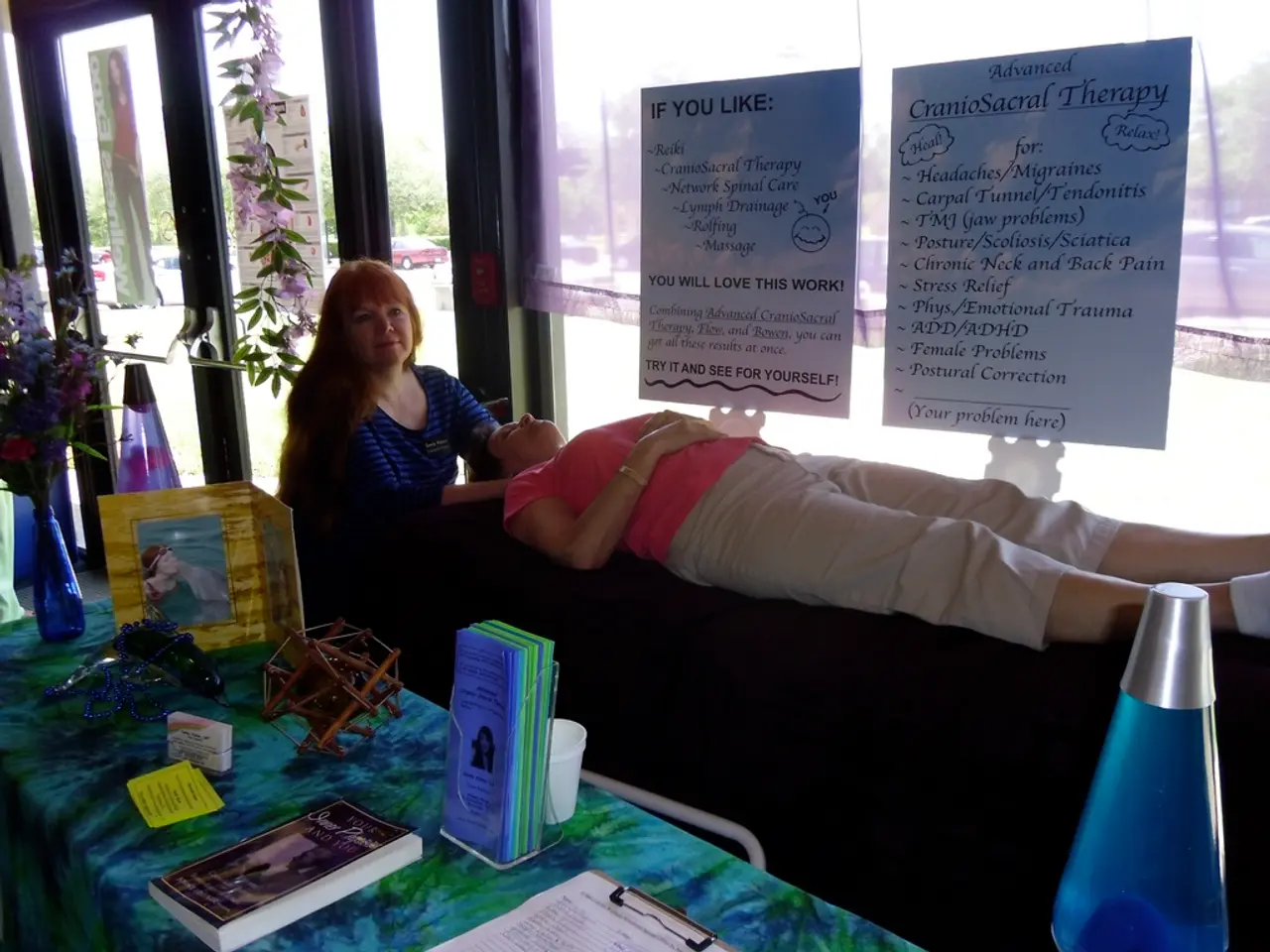Yes, indeed, it's possible to have both anxiety and bipolar disorder. The combination of these conditions is common and can lead to complex mental health challenges.
Bipolar disorder, a mental health condition characterized by extreme mood swings, often co-occurs with anxiety disorders. This comorbidity is a significant concern, as anxiety can worsen the course and outcomes of bipolar disorder.
Research suggests that shared underlying mechanisms such as dysregulated brain circuits, genetics, chronic stress exposure, and life events contribute to the high prevalence of anxiety symptoms and disorders among individuals with bipolar disorder [1][4].
The presence of anxiety in bipolar disorder can lead to increased severity of mood episodes, longer episode duration, more frequent relapses, poorer treatment outcomes, greater functional impairment, and a higher risk of suicidality [1][4].
Addressing anxiety symptoms is crucial for achieving more effective treatment and improved quality of life in bipolar patients. Several treatment options are available:
- Cognitive Behavioral Therapy (CBT): This therapy teaches people to recognise and manage thoughts and behaviours that affect their moods.
- Mood stabilizers or antipsychotic medications: These are initially prescribed to treat the symptoms of bipolar disorder.
- Family Therapy: This aims to reduce stress within a family unit to alleviate symptoms of both bipolar disorder and anxiety.
- Antidepressants: While commonly used for anxiety, they can destabilize the mood of a person with bipolar disorder and cause manic episodes. However, a doctor may prescribe a very low dose of antidepressants to help with anxiety, done carefully to avoid triggering a manic episode.
- MoodNetwork: This is a team of psychologists, researchers, and mental health advocates that gather information and feedback from people with mood disorders to research new treatment methods.
It is essential to seek the advice of a healthcare professional when managing both anxiety and bipolar disorder. A professional diagnosis and treatment plan can help avoid exacerbating symptoms.
Support groups such as DBSA and MoodNetwork provide a sense of community for people living with bipolar disorder and anxiety. The Depression and Bipolar Support Alliance (DBSA) is an organization that provides free resources for people with bipolar disorder and anxiety.
Interpersonal and social rhythm therapy is another option. This teaches people to record their moods and activities to plan for and manage disruptions to their routine.
In conclusion, understanding the link between anxiety and bipolar disorder is vital for effective treatment and improved quality of life. Addressing anxiety symptoms is key to managing bipolar disorder and achieving better outcomes.
- Cognitive Behavioral Therapy (CBT) can be helpful in teaching individuals with bipolar disorder to recognize and manage thoughts and behaviors that affect their moods, potentially reducing anxiety symptoms.
- The interplay between anxiety and bipolar disorder can lead to a higher risk of suicidality, longer episode duration, more frequent relapses, and poorer treatment outcomes, making it crucial to seek professional help and develop a personalized treatment plan.
- In the realm of health-and-wellness and mental-health, support groups like DBSA and MoodNetwork offer resources, advice, and a sense of community for people living with both bipolar disorder and anxiety, fostering better well-being and recovery.




